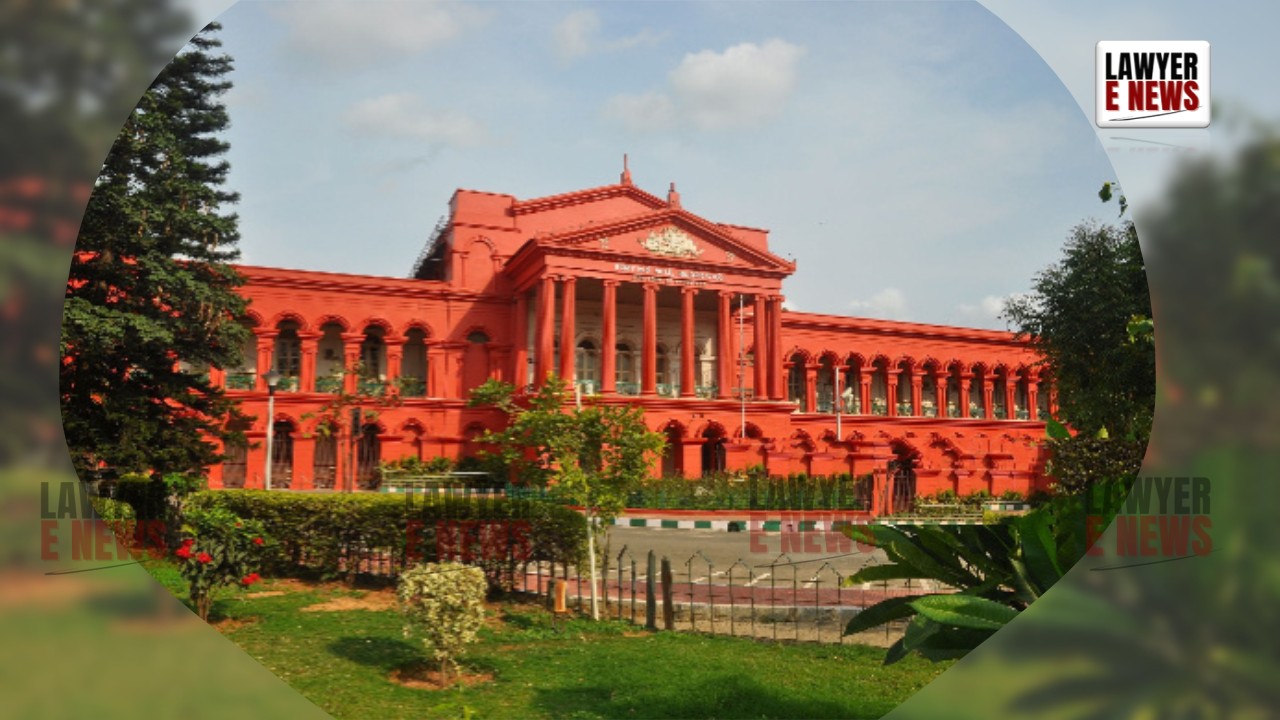-
by Admin
16 February 2026 5:45 AM



High Court Cannot Direct Reservation in a Private Association in the Absence of a Legal Mandate – Karnataka High Court, in a significant ruling on February 1, 2025, dismissed petitions seeking the implementation of a 50% reservation policy for Scheduled Castes (SC), Scheduled Tribes (ST), and backward communities, including women, in the Governing Body of the Bengaluru Advocates Association. The Court categorically held that “In the absence of statutory provisions or constitutional mandate, the High Court cannot direct reservation in a private association.”
Justice R. Devdas, while delivering the judgment, noted that although the Supreme Court had invoked its extraordinary jurisdiction under Article 142 to mandate reservations for women in the Advocates Association, the High Court did not possess a similar power. Accordingly, the Court dismissed the petitions while leaving it open for the petitioners to approach the Supreme Court for appropriate relief.
Reservation in Advocates’ Association Elections – High Court Lacks Power Under Article 226
The Court was faced with the question of whether it could direct the Bengaluru Advocates Association to implement reservations for SC/ST and backward communities in its elections. The petitioners argued that since the Supreme Court had directed reservation for women, the same principle should apply to marginalized communities under Article 14 of the Constitution.
Rejecting this contention, the Court held, “The Supreme Court in Fozia Rahman v. Bar Council of Delhi and SCBA v. B.D. Kaushik had exercised its power under Article 142, which is exclusive to the Apex Court. This Court lacks the power to issue such a direction under Article 226.”
The judgment made it clear that unless a constitutional or statutory provision mandated such reservations, “the High Court cannot create a right where none exists.”
No Justification for Selective Reservation – No Violation of Article 14
The petitioners contended that since the Supreme Court had allowed reservation for women in the Bengaluru Advocates Association, it was discriminatory to deny the same benefit to SC/ST and backward-class advocates. They relied on the principle of equality under Article 14 of the Constitution.
Addressing this argument, the Court clarified, “Article 14 does not mandate reservations in private associations unless there is an express legal provision for the same. The Supreme Court’s intervention for women’s reservation was based on the absence of any prohibition in the by-laws, not on a general right to reservation.”
The Court, therefore, ruled that “there is no violation of Article 14 in denying reservations to SC/ST and backward-class advocates, as the Association’s governing rules do not provide for such reservations.”
Bengaluru Advocates Association – Public Function or Private Entity?
The petitioners argued that since the Advocates Association received government funding and regulated legal practice, it should be considered a public body subject to constitutional scrutiny and state reservation policies.
The Court examined this claim in light of Board of Control for Cricket in India (BCCI) v. Cricket Association of Bihar, (2015) 3 SCC 251, where the Supreme Court held that private entities performing public functions could be subject to writ jurisdiction. However, distinguishing the present case, the Court held, “Unlike the BCCI, which has a regulatory role in cricket, the Advocates Association is primarily a private body formed by its members and operates with internal autonomy.”
Consequently, the Court ruled, “The Bengaluru Advocates Association is not bound by government reservation policies, and the Court cannot interfere with its internal election rules in the absence of a statutory mandate.”
Previous Precedent – No Judicial Basis for Reservation in Bar Associations
The Court also referred to its earlier decision in K.N. Subbareddy v. Advocates Association, ILR 2009 Kar 1697, where directions were issued concerning election management but no reservation was mandated.
Referring to that precedent, the Court held, “The petitioners have failed to establish any legal basis for enforcing reservations in the Advocates Association. The High Court cannot impose reservations where the law does not provide for them.”
Supreme Court’s Intervention Under Article 142 – Not a Precedent for High Court
The petitioners relied heavily on the Supreme Court’s recent directions in Fozia Rahman v. Bar Council of Delhi and SCBA v. B.D. Kaushik, where it mandated reservations for women in the Bengaluru Advocates Association. The Court acknowledged these rulings but clarified that they were issued under the Supreme Court’s extraordinary powers under Article 142.
The Court noted, “The Supreme Court, in its orders dated 24.01.2025 and 28.01.2025, explicitly invoked Article 142 to mandate reservations for women in the Advocates Association. This Court has no such power under Article 226.”
Reiterating this limitation, the Court ruled, “If at all such a direction can be issued, it can only be at the hands of the Hon’ble Supreme Court, which may invoke its extraordinary jurisdiction under Article 142.”
Petitioners Must Approach Supreme Court for Relief
Summarizing its ruling, the Court concluded, “The Hon'ble Supreme Court has clearly held in its orders that all directions regarding reservations in the Advocates Association were issued under Article 142. This Court, therefore, cannot exercise a similar power. If the petitioners seek such reservations, they must approach the Supreme Court.”
Accordingly, the petitions were dismissed, with the Court stating, “This Court refrains from making any comments on the resolution passed by the Advocates Association on 27.01.2025. If the petitioners seek to benefit from it, they are free to approach the Hon’ble Supreme Court.”
Date of Judgment: February 1, 2025
